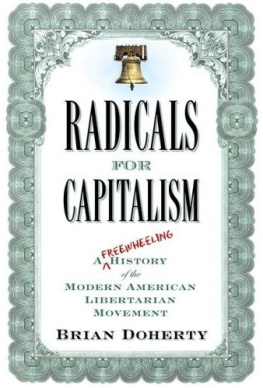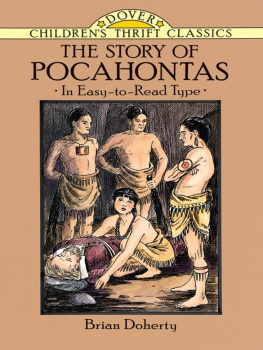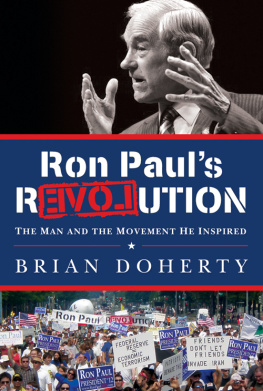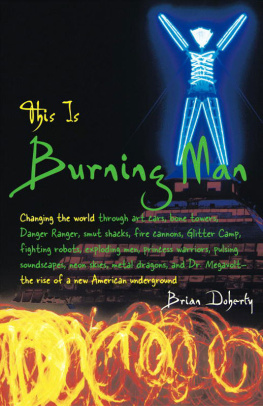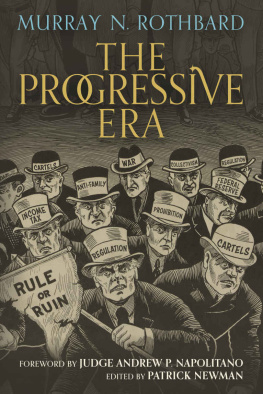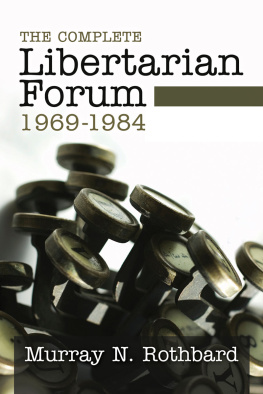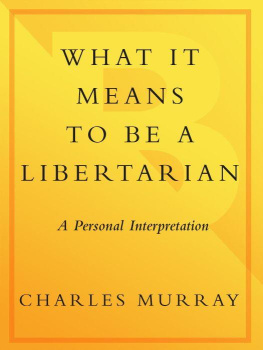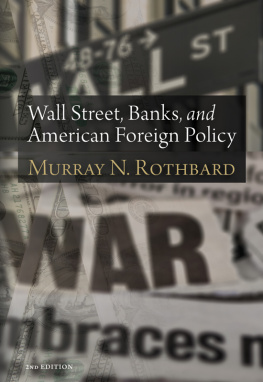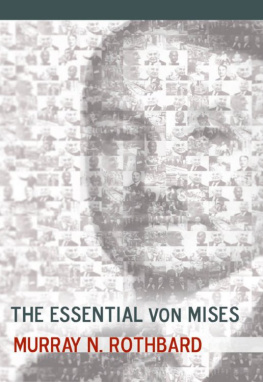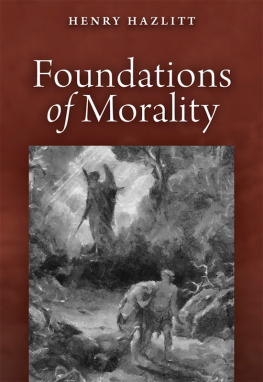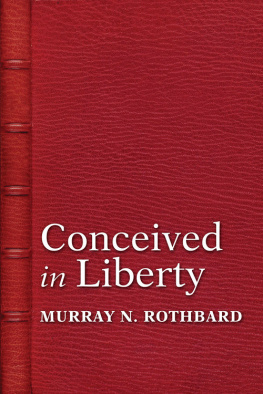ACKNOWLEDGMENTS
The first and most vital thanks are due to all who allowed me to interview them about libertarianism and the libertarian movement in the course of researching this book. They provided the bulk of the understanding, anecdotes, and observations that informed it, even if they are not all quoted by name in the text. They all gave generously of their time, memories, and insights, and in some cases their papers and documents. They are listed in alphabetical order: John Baden, Doug Bandow, John Perry Barlow, Randy Barnett, Joseph Bast, David Bergland, Walter Block, Burt Blumert, John Blundell, David Boaz, Alan Bock, Peter Boettke, Neal Boortz, Don Boudreaux, Mark Brady, R. W. Bradford, Barbara Branden, Nathaniel Branden, Harry Browne, Scott Bullock, Gene Callahan, Ted Galen Carpenter, Doug Casey, Susan Chamberlain, Steve Chapman, Edward Clark, Joe Cobb, Richard Cornuelle, Tyler Cowen, Stephen Cox, Edward Crane III, Douglas Den Uyl, Gus DiZerega, Richard Ebeling, Abraham Ellis, Don Ernsberger, Williamson Evers, Paul Feine, Richard Fink, David Friedman, Jeffrey Friedman, Milton Friedman, Mary Frohman, David Gordon, Bettina Bien Greaves, Gary Greenberg, Kenneth Gregg, Walter Grinder, Charles Hamilton, Ronald Hamowy, Karl Hess Jr., Robert Hessen, Michael Holmes, Jacob Hornberger, Jeffrey Rogers Hummel, Sam Husbands, Paul Jacob, David Kelley, Israel Kirzner, Manuel Klausner, Charles Koch, David Koch, George Koether, Timothy Leary, Lois LeFevre, Leonard Liggio, Spencer Heath MacCallum,Tibor Machan, Randall McElroy, Wendy McElroy, Donald Meinshausen, Charles Murray, Jan Narveson, Tonie Nathan, David Nolan, Grover Norquist, Eric OKeefe, Emilio Pacheco, David Padden,Tom Palmer, Ron Paul, Durk Pearson, George Pearson, Robert Poole Jr., Virginia Postrel, Sharon Presley, Ralph Raico, Justin Raimondo, George Resch, Andrea Rich, Howard Rich, Sheldon Richman, Jeff Riggenbach, Mario Rizzo, Llewellyn H. Rockwell Jr., Dana Rohrabacher, Louis Rossetto, James Sadowsky, Ryan Sager, Lynn Scarlett, J. Neil Schulman, Dave Schumacher, Chris Sciabarra, Hans Sennholz, Butler Shaffer, Jane Shaw, Sandy Shaw, Mark Skousen, Fred Smith, George H. Smith, L. Neil Smith, Robert J. Smith, John Stossel, Thomas Szasz, Chris Talley, Jason Talley, Joan Kennedy Taylor, Kenneth Templeton, David Theroux, Jerome Tuccille, Jesse Walker, Chris Whitten, Walter Williams, Robert Anton Wilson, Richard Winger, Anne Wortham, and Marty Zupan.
While it may usually begin with Ayn Rand, in this books case it began with Chris Whitten. In a longish bull session on matters libertarian back at the Cato Institute in the early 1990s, he decided that a book like this needed to be written and that I was competent to do it. He brought the idea, and me, to the attention of Andrea Rich, one of the administrators of the Roy Childs Memorial Scholars Fund. The Childs Fund graciously (and patiently) provided me with financial assistance to cover some of the costs of travel, books, and other expenses of researching and writing this book. I would like to thank the fund and all its administrators and contributors, particularly Andrea Rich, the late Robert Kephart, Anita Anderson, and David Boaz.
That support paid off because of the belief, support, and encouragement of Peter Osnos, one of the last of the great independent publishers, and Lisa Kaufman, my brilliant editor, both of PublicAffairs, who took a chance on a curious and sometimes disreputable topic. Kaufman was a skilled and skeptical set of intelligent and observant eyes that helped make this book much better than it otherwise might have been; any errors and infelicities of course remain my responsibility. Thanks also to my agent William Clark for his usual cheerful and encouraging efficiency in making it all happen.
Many friends, colleagues, and interview subjects supplied much needed hospitality during research trips to visit archives and interview subjects that spanned a decade. The travel would have become prohibitively expensive, and soul deadening, without the kindness of (in alphabetical order): Jon Asfour, Bob Bannister, Jude Blanchette, Philip Bonham, Barbara Branden, Krista Avril Bray, Greg Ceton, Ana Marie Cox, Celia Farber, Nick Gillespie, Kip Haugen, Jeffrey Rogers Hummel, Shari Linnick, Joe Martin, Candace Nelson, Ivan Osorio, Kevin Regan, John Rinaldi, Joyce Slaton, Karen Solomon, Tertia Speiser, Jessica Spicer, Matthew Schaefer, Kenneth and Lois Templeton, Silke Tudor, Karrin Vanderwal, Danni Watt, and Chris Whitten. The Ludwig von Mises Institute kindly provided lodging during my stay at the institute examining the Murray Rothbard Archives in its possession.
Thanks also to those who gamely volunteered to read portions of earlier drafts of the book and gave valuable advice and some correction along the way: Jude Blanchette, David Boaz, Bryan Caplan, Angela Keaton, the late Robert Kephart,Tom Palmer, and Andrea Rich. For any errors that might remain, I am of course entirely and solely to blame.
My research relied heavily on the resources of the Hoover Institutions archives at Stanford University; the Labadie Collection at the University of Michigan; the Special Collections at the University of Oregon; and the Libertarian Party Archives at the University of Virginia. Jeffrey Rogers Hummel graciously allowed me full access to his ambitious and thorough private collection of libertarian periodicals. Louis Carabini lent me his very rare volume of Andrew Galamboss writings. The Reason Foundation in Los Angeles, the Foundation for Economic Education in Irvington-on-Hudson, New York (special thanks to the organizing efforts and guidance of Jude Blanchette, and to Richard and Anna Ebeling), the Ludwig von Mises Institute in Auburn, Alabama (special thanks to Pat Barnett, Lew Rockwell, and Jeff Tucker), the Institute for Humane Studies in Arlington, Virginia (special thanks to Elaine Hawley, Gary Leff, and Marty Zupan), and the Orange County Register (special thanks to Sharon Claremont and Dick Wallace of Freedom Communications) were generous in allowing me access to their archives, files, and libraries.
The reader should be aware that I write this book on the institutional and intellectual history of American libertarianism as an insider. I have been employed by, or written for, or received fellowships at, or spoken at conferences under the sponsorship of, or been sent to seminars by, many libertarian institutions, including the Reason Foundation (my current employer; I am senior editor at Reason magazine, which they publish), the Cato Institute (where I worked from 1991 to 1994), the Competitive Enterprise Institute (I was their 1999 Warren Brookes Fellow in Environmental Journalism), the Foundation for Economic Education, the Institute for Humane Studies, Liberty Fund, and the Ludwig von Mises Institute. This experience and access has deepened and strengthened my understanding of the facts and circumstances of libertarian intellectual and institutional history. But all opinions or interpretations expressed here are, unless otherwise specifically attributed, my own. They are neither the responsibility of, nor dictated by, any of those organizations.
Reason magazines 2004 Burton C. Gray Memorial intern Hanah Metchis helped with interview transcriptions and digging up needed sources and information; Reasons 2006 Burton C. Gray Memorial intern Taylor Buley was also wonderful in digging up citations and information under severe deadline pressure. All my colleagues at Reason, past and present, have been marvelously supportive of the project and patient with the long absences from daily work responsibilities that it required, for which Id like to thank Nick Gillespie, David Nott, Jesse Walker, Kerry Howley, Julian Sanchez, Jacob Sullum, Charles Paul Freund, Matt Welch, Sara Rimensnyder, Barbara Burch, Murielle Schultz, and Mary Toledo.

